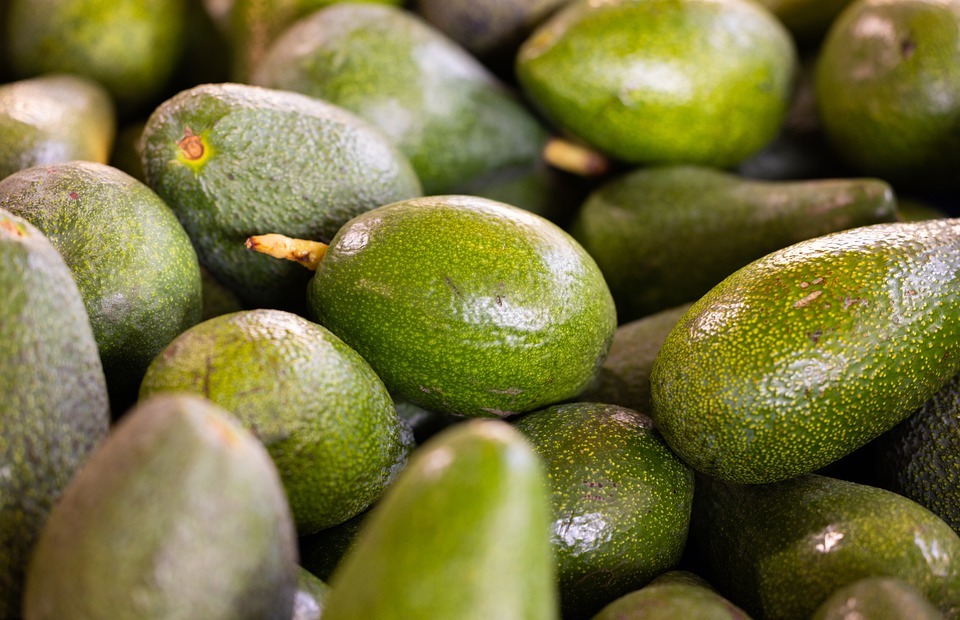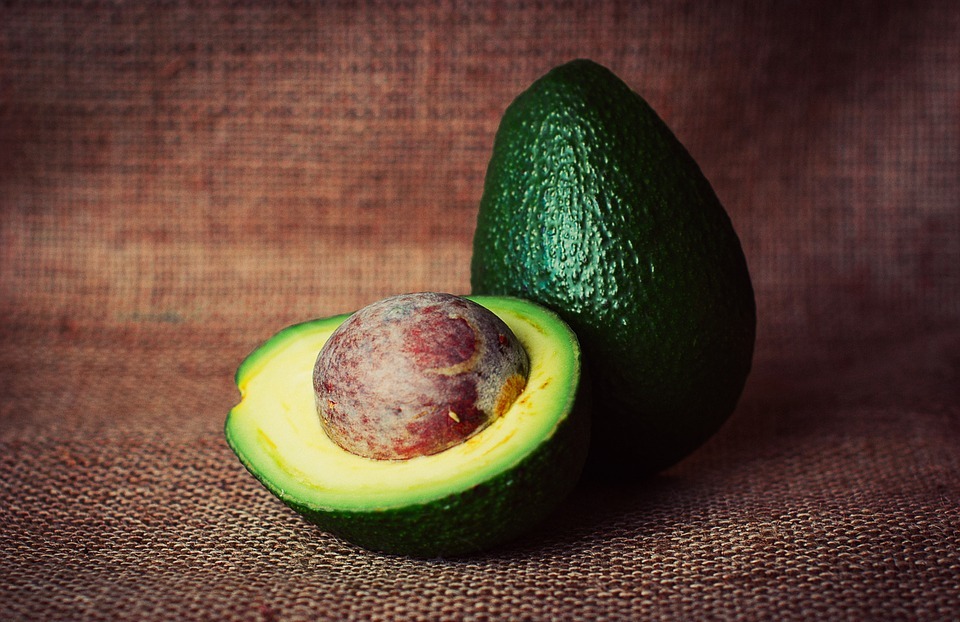Avocado, with its creamy texture and rich flavour, is a popular fruit enjoyed by humans worldwide. However, when it comes to our canine companions, the question of whether they can safely indulge in this delectable treat is a matter of debate. This article will delve into the complexities of avocado consumption for dogs, exploring the potential risks and benefits, and providing clear guidance to ensure your furry friend's well-being.
Part 1: The Risks of Avocado for Dogs

1.1. Persin: The Toxic Culprit
Avocado contains a compound called persin, a fungicidal toxin found in all parts of the fruit, including the flesh, skin, pit, and leaves. Persin's primary function is to protect the avocado plant from fungal infections. While humans can tolerate persin without significant adverse effects, it can be highly toxic to dogs, cats, and other animals, leading to a range of health complications.
1.2. Symptoms of Avocado Toxicity in Dogs
If your dog ingests avocado, even in small amounts, it's crucial to be aware of the potential symptoms that may arise:
- Gastrointestinal Distress: The most common symptoms include vomiting and diarrhoea, which can range from mild to severe depending on the amount of avocado consumed.
- Respiratory Issues: In some cases, dogs may experience difficulty breathing, shortness of breath, or even respiratory failure.
- Lethargy and Weakness: Avocado toxicity can cause lethargy, weakness, and loss of energy, making your dog appear sluggish and unresponsive.
- Fluid Accumulation: In severe cases, avocado toxicity can lead to fluid accumulation in the chest (pleural effusion) and abdomen (peritoneal effusion), putting additional strain on the cardiovascular system.
- Cardiac Complications: Avocado toxicity can also affect the heart, potentially leading to congestive heart failure in susceptible dogs.
1.3. Factors Influencing Toxicity Severity
The severity of avocado toxicity in dogs depends on several factors:
- Quantity Consumed: The amount of avocado ingested plays a crucial role. Small amounts may cause mild symptoms, while larger quantities can lead to more severe reactions.
- Dog's Size: Smaller dogs are generally more susceptible to the effects of persin due to their smaller body size and lower tolerance for toxins.
- Individual Sensitivity: Some dogs may be more sensitive to persin than others, even when consuming the same amount of avocado.
- Pre-existing Health Conditions: Dogs with pre-existing heart conditions, respiratory problems, or weakened immune systems may be more vulnerable to the adverse effects of avocado toxicity.
1.4. Diagnosing Avocado Toxicity
If you suspect your dog has ingested avocado, it's essential to seek veterinary attention immediately. Your veterinarian will conduct a thorough physical examination, assess your dog's symptoms, and may perform additional tests, such as bloodwork or imaging, to confirm the diagnosis and determine the severity of the toxicity.
1.5. Understanding the Risks: A Case Study
Consider the case of a small terrier mix named Coco, who accidentally ate a piece of avocado while her owner wasn't paying attention. Within a few hours, Coco started vomiting and had diarrhoea. Her owner noticed she was also unusually lethargic and struggled to breathe. Realising the potential danger, Coco's owner rushed her to the veterinarian, where she received prompt treatment and thankfully made a full recovery. This case highlights the importance of recognizing the potential risks of avocado for dogs and seeking veterinary care promptly.
Part 2: What to Do if Your Dog Eats Avocado

2.1. Immediate Action
If you witness your dog eating avocado, even a small piece, act quickly to minimize the risk of toxicity:
- Remove the Avocado: Immediately remove any remaining avocado from your dog's reach, preventing further ingestion.
- Contact Your Veterinarian: Call your veterinarian as soon as possible to inform them of the situation and seek guidance on how to proceed.
2.2. Veterinary Care and Treatment
Your veterinarian will assess your dog's condition, considering the amount of avocado consumed, the dog's size, and any existing health conditions. Based on this assessment, they may recommend the following:
- Inducing Vomiting: In cases where ingestion occurred recently, your veterinarian may induce vomiting to remove the avocado from your dog's stomach before it can be absorbed.
- Activated Charcoal: Activated charcoal can be administered to help absorb toxins in the stomach, reducing the absorption of persin into the bloodstream.
- Fluid Therapy: Intravenous fluids may be necessary to support hydration, especially if your dog is experiencing vomiting or diarrhoea.
- Monitoring and Supportive Care: Your veterinarian will closely monitor your dog's vital signs, including heart rate, respiratory rate, and body temperature, and provide supportive care to alleviate symptoms.
2.3. Importance of Proactive Action
Prompt action and veterinary care are crucial in managing avocado toxicity. Early intervention can significantly improve your dog's chances of a full recovery. Delaying treatment can lead to more severe complications and potentially life-threatening consequences.
Part 3: The Potential Benefits of Avocado for Dogs (With Caution)

While avocado is generally considered unsafe for dogs due to persin, it does contain some nutrients that could be beneficial for canine health, but only when consumed with extreme caution.
3.1. Nutritional Value of Avocado
Avocado is a good source of:
- Healthy Fats: Avocado contains monounsaturated fatty acids, which are beneficial for heart health and can contribute to healthy skin and coat.
- Dietary Fiber: Fiber is essential for digestive health, helping to regulate bowel movements and prevent constipation.
- Vitamins and Minerals: Avocado is rich in vitamins C, E, K, and B-complex vitamins, as well as potassium, magnesium, and folate, all of which play important roles in maintaining overall health.
3.2. Potential Use in Dog Treats (With Expert Supervision)
Some commercially available dog treats contain avocado. These treats are carefully formulated to remove or neutralize persin, ensuring the safety of canine consumption. However, it's crucial to note that these treats should only be given under the supervision of a veterinarian, who can assess your dog's individual needs and ensure appropriate dosage.
3.3. Homemade Treats: A Big No-No
It's strongly discouraged to prepare homemade avocado treats for your dog. It's extremely difficult to remove persin completely from avocado during home preparation, putting your dog at risk of toxicity.
Part 4: FAQs About Avocado and Dogs
4.1. Can Dogs Eat Avocado Pit?
Absolutely not! The avocado pit contains a higher concentration of persin than the flesh, making it particularly toxic. It also poses a choking hazard and can cause digestive issues if ingested.
4.2. Can Dogs Eat Avocado Skin?
Similarly, the avocado skin also contains persin and should be avoided. It can also be difficult for dogs to digest, potentially leading to gastrointestinal problems.
4.3. Is Avocado Seed Safe for Dogs?
No, avocado seeds (the pit) are considered highly toxic to dogs. They contain a significant amount of persin, making them dangerous for consumption.
4.4. Can Dogs Have Avocado Toast?
Definitely not! Avocado toast, a popular human food, is off-limits for dogs. The avocado in toast contains persin, making it unsafe for canine consumption.
4.5. Can Dogs Have Avocado Oil?
While avocado oil is generally considered safe for dogs in small amounts, it's crucial to consult your veterinarian before introducing it to your dog's diet. They can help determine the appropriate dosage and ensure it's suitable for your dog's individual needs.
4.6. What Happens If My Dog Eats Avocado?
If your dog eats avocado, contact your veterinarian immediately. The severity of the toxicity depends on several factors, including the amount consumed, the dog's size, and its overall health.
4.7. How Long Does Avocado Toxicity Last in Dogs?
The duration of avocado toxicity can vary depending on the severity of the ingestion. Symptoms can appear within a few hours and may last for several days. It's essential to monitor your dog closely and seek veterinary care if you observe any signs of illness.
4.8. Can I Give My Dog Avocado If I Remove the Pit and Skin?
No, even after removing the pit and skin, avocado remains unsafe for dogs. Persin is present in all parts of the avocado, including the flesh.
Part 5: The Bottom Line: Exercise Caution
While the nutritional benefits of avocado may be appealing, the potential dangers of persin toxicity outweigh any potential advantages for dogs. It's best to err on the side of caution and avoid offering avocado to your furry companion. If you suspect your dog has ingested avocado, seek veterinary attention promptly for appropriate diagnosis and treatment.
Everyone is watching
-

Can Dogs Eat Bananas? A Guide to Safe Treats
DOGS & PUPPIESThis comprehensive guide will delve into the world of canine nutrition, focusing on the popular question: can ...
-

Can Dogs Eat Oranges? (Is It Safe or Toxic?)
DOGS & PUPPIESThis article delves into the question of whether dogs can safely consume oranges. We'll explore the nutrition...
-

Can Dogs Eat Grapes? The Shocking Truth About This Fruit
DOGS & PUPPIESThis article delves into the controversial topic of grapes and dogs, exploring the potential dangers associate...
-

Why Do Dogs Eat Poop? Understanding Coprophagia in Dogs
DOGS & PUPPIESThis article delves into the perplexing phenomenon of coprophagia, the act of eating faeces, in dogs. We explo...
-

Can Dogs Eat Shrimp? A Guide to Safety and Risks
DOGS & PUPPIESThis comprehensive guide dives into the world of shrimp and dogs, exploring the potential benefits and risks a...
